Every country has its shadow side, dark secrets, embarrassing problems and PR nightmares that governments attempt to sweep under the rug and hush-up. Here are New Zealand’s. I’m doing this so that people who have this idealised, naïve view of New Zealand as some sort of Utopia actually come here knowing what to really expect, if they wish to make a life here.
On balance, there will be a Pros section, listing all of the positives of living in New Zealand. There are many, but I would argue that the positives are more abstract and less tangible and impactful on an individual’s life quality.
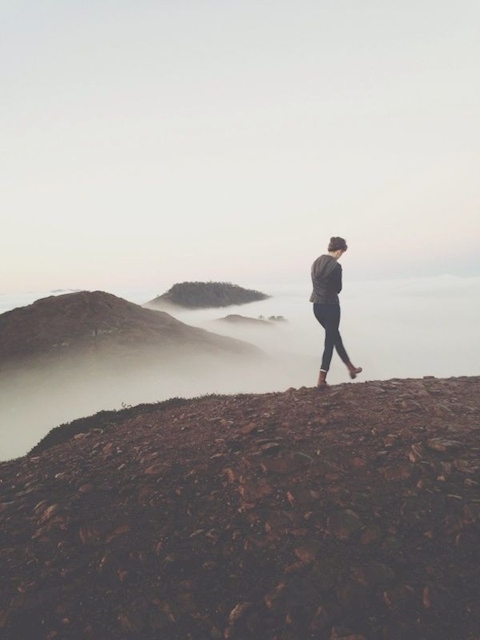
Why write this? Well I’m feeling a bit fed up truth be told. A little bit about me, I’m a mixture of Māori and Northern European background. I was born in Australia, however I moved to New Zealand about eight years ago to discover Te Ao Māori (Māori culture) and explore this beautiful country with my partner. Prior to living in New Zealand – In the past I have lived in the UK, Germany, Australia (where I lived most of my life) and spent longish periods in China and Taiwan. So I have some other places to compare to, in terms of standard of living. I don’t regret the move to New Zealand, it has taught me a lot.
Word to the wise: if you are Kiwi you might get triggered if you read further, because this is not a nice glowing review of New Zealand, more it’s a critique. Although instead of me blabbing on and giving my unqualified ‘opinion’ I will let news articles, research and statistics do the heavy-lifting for me. But still, it may be confronting to read for certain people who honestly believe that New Zealand is the best country in the world.
No place is perfect. I know that. I could write a novel about all of the ways Australia is a crappy place to live too.
Environment
New Zealand prides itself on having a clean and pristine environment, backed by the NZ Tourism’s 100% Pure slogan, yet this slogan is far from reality.
Farming and agriculture run-off has destroyed rivers, lakes and beaches all over the country. Threatening the lives of people and animals who enjoy wild swimming and making tap water undrinkable. One expert estimates that by 2050 the beachy lifestyle will be different, but not in a good way.
Since 2018, all rubbish (except for 3 types of plastic) has been quietly going to landfill because there is no adequate recycling capability in New Zealand. Recycling rules are convoluted and vague here compared to other countries. You can be assured even if you do do the right thing here and separate waste, it will likely go to landfill anyway.
New Zealand ranks 21st out of 23 high income countries for climate finance funding. The funding that provides a lifeline to many of the world’s pooret countries on the frontlines of climate change.

Consumer rights
Unlike the US, Australia and the UK, New Zealand has no required product labelling on food origins so that individuals can decide whether or not to purchase items based on their sustainability. Also there’s no requirement to let people know if products contain harmful palm oil, this decision has remained uncontested since 2009 because labelling palm oil on products is a nutritional issue, not an environmental issue, and therefore it is deemed irrelevant!
Supermarket competition – which has driven down food prices in Australia, is limited in New Zealand. Almost all supermarkets in New Zealand are owned by two chains: Foodstuffs (whose brands include New World, Pak’nSave and Four Square) and Woolworths (which owns the country’s 180 Countdown supermarkets, as well as 60 Super Value and Fresh Choice). Alternatives such as independent grocers are few and far between here.
So much so, that the NZ Government has launched an investigation into anti-competitive and predatory price-fixing behaviour by the two supermarket chains.
In the mean-time, consumers foot the bill. Food accounts for about 17% of the average Kiwi household’s weekly expenses. This has been increasing year-on-year.
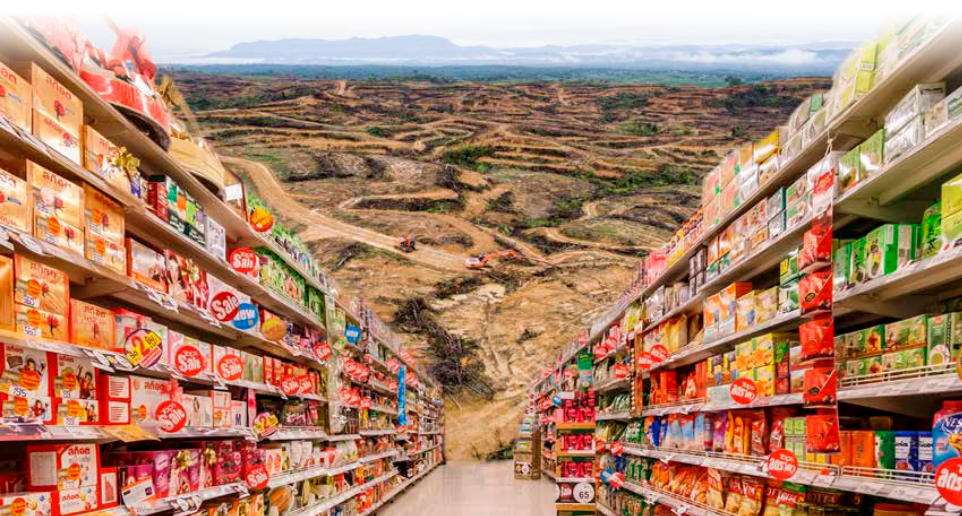
International Relations
New Zealand has an enviable position on the world’s stage, thanks in part to Jacinda Ardern’s superb political acumen and raw charisma. However, the nuts and bolts of economic trade are different from all of the rhetoric of peace, love and moonbeams. The two don’t overlap in the slightest. New Zealand’s biggest trading partner is China. New Zealand was noticeably absent from criticising China’s recent arrests of Hong Kong protestors. The only nation in the Five Eyes Security Alliance to remain silent. Preferring to sit on the fence and stay silent on China’s atrocious record on human rights abuses, and the arrests of protesters in Hong Kong.
This is because China is New Zealand’s biggest trading partner, and represents a huge portion of New Zealand’s GDP. New Zealand based members of the Chinese Communist Party also worked in management roles in local NZ banks and even in the (then) National government.
If you drill down into the money, the peace, love, and diversity rhetoric of Ardern’s Labour does not apply to those people who are experiencing human rights abuses in China. The rhetoric is the surface polish. Beneath this is the need for raw hard cash from Chinese trade. This makes the Labour party no different from the conservative National party, previously in power.

Housing
In 2020, rental prices continued to surge across New Zealand. The median rent in 2020 was 21% higher than it was in 2015. A lack of housing stock, over-priced land, expensive tradespeople, expensive and low quality building materials, earthquake risk and high insurance costs all conspire to create a perfect storm for young, millennial first home buyers, who are permanently priced out of the market, or forced to move overseas to buy their first home. Many people have resorted to living in caravans and there is a long wait-list for the construction of tiny homes.
The housing shortage is one factor that impacts the rate of homelessness here. New Zealand has a far higher rate of homelessness per capita than any other OECD country. See figure 2.

Source: ANZ Property Focus December 2020 Housing affordability – unlocking the solution
In the past 30 years, the average cost of housing has outpaced the national average wage by 700%. Nationwide, the median house price has gone from around $100k in the early 90s to $730k now. Although incomes haven’t increased at the same pace during this time. In 2020, the median house price is 7 x the average income, compared to 3 x the average income in the early 90s (figure 1). The average property price hit $788,967 in 2020. Buying a first home is out of reach for most people. Even in one New Zealand’s lowest income areas, multi-million dollar houses are now being sold.

By 2018, just over 1.4 million people lived in houses they didn’t own, including 120,000 children under five years old. Homeownership has plummeted to its lowest rate since 1951.
Source: ANZ Property Focus December 2020 Housing affordability – unlocking the solution
One report by Stats NZ showed that 318,891 (21.5 per cent) of New Zealand houses were sometimes or always damp and 252,855 (16.9 per cent) had visible mould larger than an A4 sheet of paper at least some of the time.
Most homes in New Zealand are cold by international standards and do not meet the World Health Organization’s recommended minimum indoor temperature of 18°C. Most of the housing stock was built between 1950 and 2000 and consists of timber framed, single storey, detached houses with either a brick or a weatherboard skin. Excess winter mortality are often greatest in countries with relatively mild climates, including New Zealand, probably because of poorer thermal housing standards compared with well insulated houses in colder climates. Cold houses are also associated with indoor dampness and mould, both consistently linked to an increased risk of respiratory symptoms, with strong evidence for asthma exacerbations and respiratory infections.
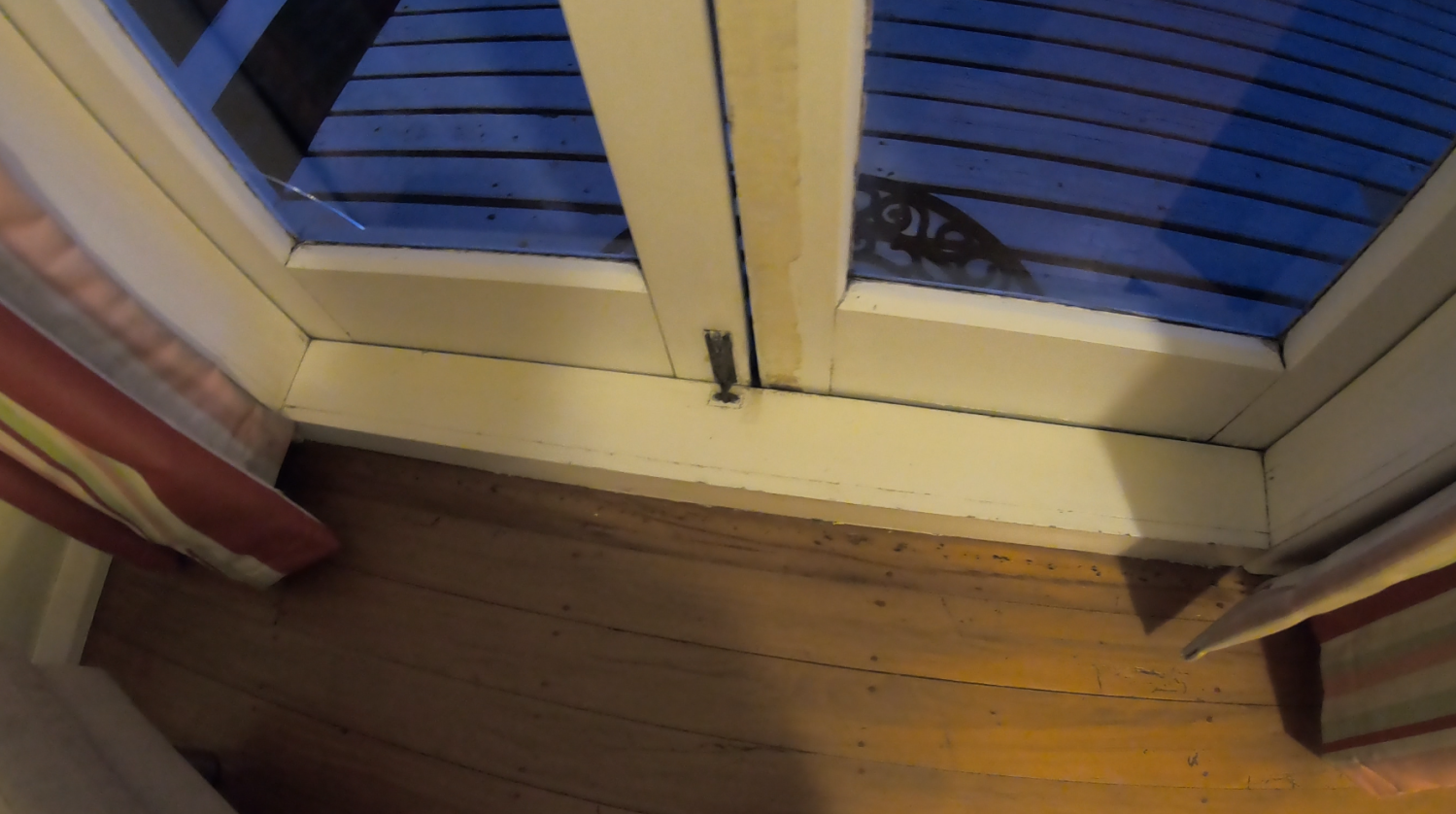
Quality of Living and Wages
According to the OECD, the median salary in Australia in 2019 was $83,602 AUD and in New Zealand it was $69,545 NZD. In New Zealand, the average household net-adjusted disposable income per capita is lower than the OECD average of USD$33 604. New Zealand is near the bottom of a UNICEF league table ranking wealthy countries on the wellbeing of their children.
The UN Children’s Fund rankings show this country’s youth suicide rates are the second highest in the developed world, with 14.9 deaths per 100,000 adolescents, and only 64 percent of 15-year-olds have basic reading and maths skills. On mental wellbeing alone, New Zealand sits at 38th on the list out of 41 on the list, and on physical health it is ranked 33rd out of 41 countries. The average Australian can expect to live a year longer than the average Kiwi.
Violent Crime
On balance, New Zealand has less violent crime than places like the United States. In New Zealand, 66% of people say that they feel safe walking alone at night, less than the OECD average of 68%.
Christchurch seems to have a racism problem. Which was highlighted by the nightmarish March 2019 mosque attacks in that city. Yet this seems to be an ongoing trend, and there seems to be an undercurrent of white supremacy in this isolated southern city. Despite the government’s guy buy-back scheme following the mosque terror attack, rates of gun crimes and killings using guns are still at their highest levels in a decade.
The capital, Wellington’s nightlife district has the highest proportion of assault and sexual assault crimes in New Zealand. New Zealand has the worst rate of family and intimate-partner violence in the OECD and 80% of this remains unreported to the police. One in three women here have experienced physical, sexual or coercive violence from an intimate partner in her lifetime; the rates are higher for Māori women, New Zealand born non-white women and migrant women.

Tax Haven for the wealthy
According to the leaks of the Panama Papers, wealthy individuals use secretive, tax-free New Zealand shell companies and trusts to help channel funds around the world. As of 2019, 3 years after the revelation of the Panama Papers, New Zealand had only managed to recover $605,567, which dwarfs other countries efforts of tax recovery, which amount to several million. Infact, money laundering through dodgy shell companies continues to be an issue in New Zealand, and it’s a place where wealthy people and big corporates can hide their money. Big Wigs such as Google and Facebook pay very little tax in New Zealand. It’s estimated about $1.35 billion from fraud and illegal drugs is laundered through legitimate businesses in New Zealand each year. After the Panama Papers, not much appears to have changed at all.
PROS
Peace
The Think Tank ‘The Global Index of Peace’ rates New Zealand 2nd in the world after Iceland for societal safety, security and the degree of militarisation. The Index for Economic Freedom (which covers everything from property rights to financial freedom) rates New Zealand 3rd best in the world.
Democracy
The Democracy Index, which looks at considerations such as free and fair elections and influence of foreign power rated New Zealand as the 4th best in the world for democracy after only 3 other countries: Norway, Iceland and Sweden. The Freedom in the World Index scores New Zealand as 97 out of 100, this dropped one point after the Christchurch terror attack.
The World Justice, Rule of Law, Project has us as 7th best in the world, up one place since last year.
Friendliness and happiness
Kiwis are known for their laidback and friendly nature. And successive international rankings stand by this idea that overall New Zealand is a ‘happy’ and ‘friendly’ country. New Zealand is the 8th most cheerful place on the planet, according to the World Happiness Report. Reporters Without Borders has NZ as 9th best in the world, but we fell two places due to recent concerns about the quality and independence of some media outlets. Having lived here for seven years, I would say that this is definitely the case, people are easy to meet and chat with if you are not from here. The flip side is that this easy-going nature means that people don’t really attempt to question the status quo enough.
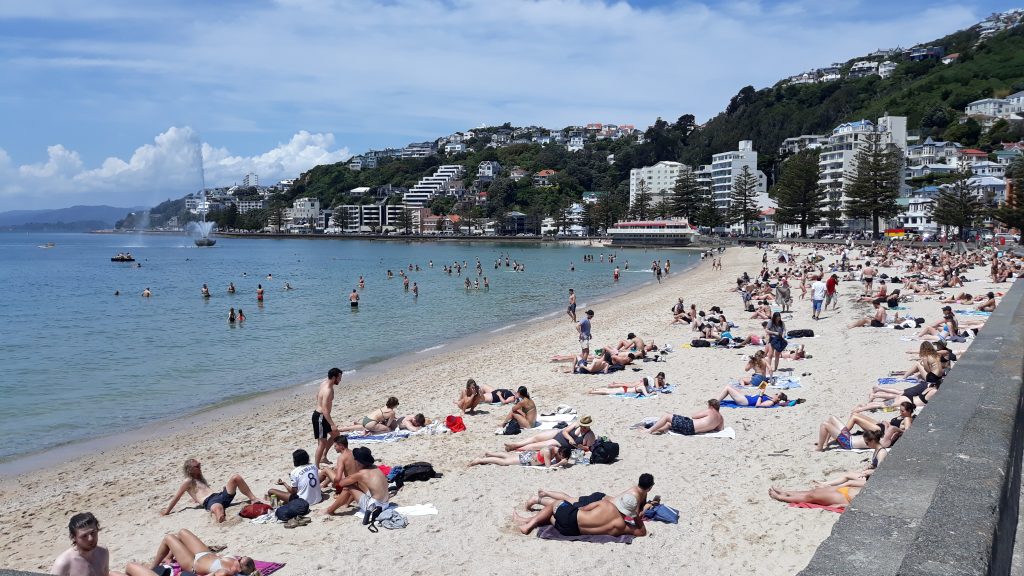
Beautiful nature
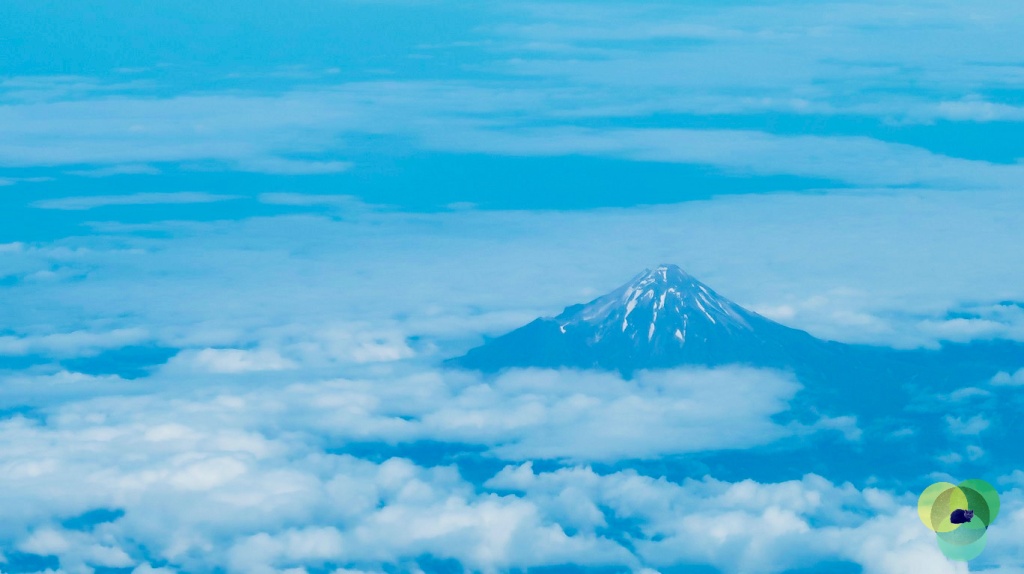
You have everything here from black sandy beaches, Milford Sound, snow-capped mountains to beautiful and characterful birds. There are 9 spectacular Great Walks, with some of the most magnificent views you will find anywhere in the world. These walks do deserve the superlatives.
No snakes
There are no snakes or big animals that can bite or harm you here, which is both strange and also pleasant, especially if you are coming from Australia. Compared to Australia there are far less mosquitos and flies as well.
Women’s rights
New Zealand was the first country in the world to give women the vote. The Suffrage movement took off here before anywhere else in the world. In hindsight, the feminist movement can be implicated as an agent of colonisation, but it did support votes for Māori women. Meri Te Tai Mangakāhia presented a motion to the newly formed Māori parliament to allow women to vote and sit in it. The Global Gender Gap Report notes an improvement of one place and positions New Zealand as the 6th most gender equal country.

The Pandemic
New Zealand’s pandemic response has been world-leading according to this Think Tank. The Guardian agrees that New Zealand has done well on areas like political stability, the economic recovery, virus control and social resilience.

Emptiness
If you are looking for a place where there are very few other people, then the South Island of New Zealand is as far away from other people as it gets.
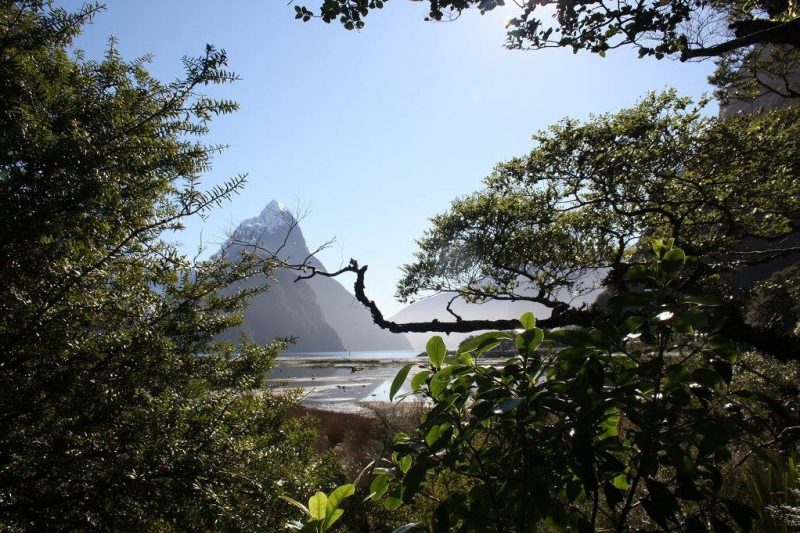
If you have made it this far, congratulations. I have tried my best to be fair here and link back to relevant sources. Let me know what you think. In my opinion – the intangibles like freedom, democracy, women’s rights and also beating the pandemic definitely count for something and add positively to the experience of living here. Although, in real tangible terms: poverty, health outcomes, housing quality and cost, violent crime, wage growth/earnings compared to other places, all of these things are vastly more relevant. These things directly affect people’s quality of life, their ability to afford a home here, or the likelihood that they will encounter crime, or will get a pay increase in their jobs or be able to afford decent healthy food. I look forward to your thoughts below.

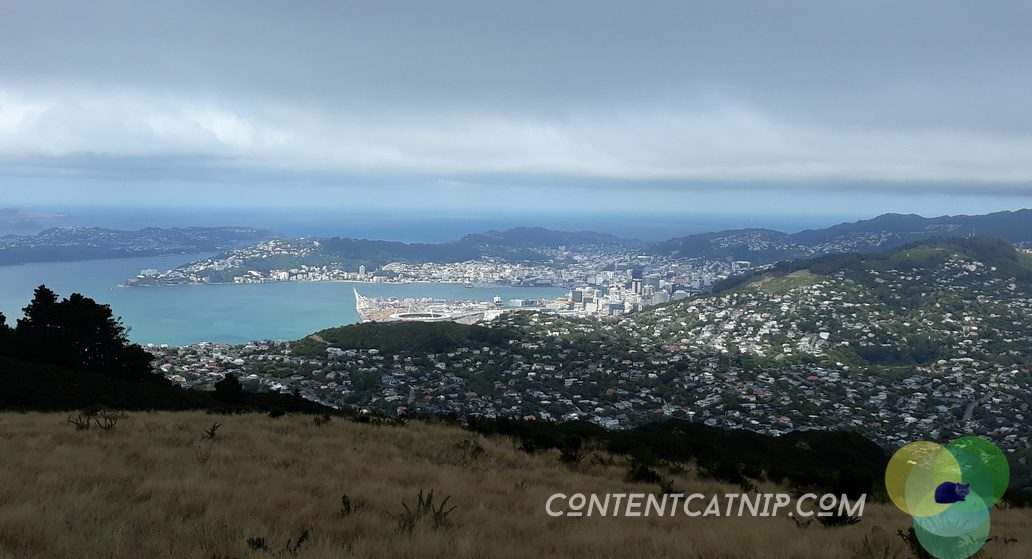
Wow, what a refreshingly candid look at everyone I know’s favorite internet fantasy: “Where I live is so crappy, I wish I lived in NZ!” (And the second thing I thought was YIKES that post took a lot of work ><;; So thank you for that.) I love how you see where you live with such an ambivalent eye—I too live in places that look ideal from the outside but might not be so perfect once you live there. But I think that living somewhere and embracing the stuff that's not so fairy tale is how you keep growing and changing and striving to make the world a better place, instead of just lying back on your chaise lounge, eating bonbons. I love that you appreciate the place where you live, but still see ways it could be better.
LikeLike
Thank you Jonelle, I’m so glad you understand the ambivalence of it…living in a place and having a complex love-hate relationship with it. I think Covid and the inability to travel and being estranged from family and friends can also make you grow tired of where you live after a while. I’m glad you understand about it, maybe you could write about Japan or California in this way? I know a lot of people myself included would love to know what it’s really like living there. Thank you for reading this, big hugs xxxx
LikeLike
Well, I can confess that NZ seemed like a little slice of heaven, until I read your post that is! It reminds me of trying to tell folks that every country has its problems – politically, since that’s such a hot topic. What do Thais think of Trump? etc. I’m moving from Thailand to find a better govt, etc. I try to tell my American friends that Thais have their own troubles and don’t really care beyond an amusing aside. And with the latter, that you can’t escape politics! So what made me think NZ was any different! But I will say I don’t build a place up so much as wish to see it. You’re so well traveled. Lucky ducky. Thanks for such an insightful post.
LikeLike
I’m so glad you got a lot out of this Lani. Yeah it’s so true, isn’t it human nature to build up places in our imaginations so that they are much better than real life? Hehe I nearly didn’t post this as I worried I would upset people or make them feel depressed or something about theirNew Zealand dream, but looks like it wasn’t that bad, its certainly very cathartic to write out the frustrations. If you did a similar type of honest post about real life, real problems and the great parts of living in Thailand I would be really excited to read it 😉 Thanks so much for reading and take care xxx
LikeLike
I’ve written a lot about Thailand over the years but when you mentioned this, the first thing that came to mind was my ‘walking’ post: https://lanivcox.com/2019/05/21/walking-an-essay/
It’s rather long, but I included an audio that I hope still works. But living in Thailand REALLY depends on where you live like anywhere else and what’s important to you? What do you want out of a place? etc.
I would imagine, like me, since you’ve moved around you have a stronger sense of what you want and don’t want.
LikeLike
Oh brilliant I will deep dive into this and all of your other posts on Thailand, thank you so much Lani 😊
LikeLike
😀
LikeLike
Also….I understand why people in the US would want to leave what with all the crazy stuff going on there. I feel for people there it must be full on living there right now. I feel like good change is coming, we have to keep hoping eh 🙏 💜 💚
LikeLike
I’ve actually LIVED (not just visited but LIVED) In a number countries, ranging from four different European ones (I was born in Germany), plus the US, Mexico, Japan and, for the other parts of my life, in Australia and New Zealand (in the latter for over 20 years).
What people don’t seem to understand is that every nation is imperfect. I’ve yet to come across a nation without inequality, poverty, prejudice and other flaws too numerous to mention. That’s because people are and have always been imperfect, deeply flawed and easily can be made to think and do really stupid and bordering-on-evil or maybe actually-evil things. Greed, acquisitiveness, the desire to have power over others, to possess land, to be environmentally irresponsible are ubiquitous. Everywhere.
What however struck me about New Zealand is that for someone who somehow always felt like he was a lost soul with no place that actually DREW him somewhere, New Zealand (BTW, right now I’m not there, but only because of family, who are in Australia) is the only place on the earth to which I have a true emotional attachment. And BTW, I am a citizen of both NZ and Australia.
Of the places I have lived, however New Zealand is the best I’ve ever been, and to which a dearly hope to be able to return one day, and never mind the flaws. Kiwis are among the most remarkable people in the world; next to Spaniards maybe, who are my 2nd favorites.
There is no paradise. There are only better or worse places to be. Pick your own. For some NZ won’t be it. I know it is for me; at least comes as close as I think is possible on this planet… Right now anyway.
LikeLike
Hi Til great to hear from you. Interesting to hear this perspective. Yes, I know what you mean about the pull of New Zealand. I have this feeling too, but put it down to being Māori, but pakeha and also foreigners especially many Europeans have said the same thing about New Zealand. Unfortunately despite all that, it is a very expensive country in terms of food, rent/mortgage with a very low average wage, meaning it’s a constant treadmill of survival and wage grind. So that’s the reality if you aren’t of wealthy means. If you are coming to New Zealand with several million in the bank, you can get almost zero taxation on assets and houses..which is great 👍 for some, and breeds absolute rage and anger for other New Zealanders. Til what are your thoughts on living in Australia? Thank you for such a lengthy response, take care
LikeLike
Til, if you feel that attachment to New Zealand on such a deep level I would still move here, but expect Sydney prices in Wellington or Auckland for renting or buying a property here. Expect low wages as well in all industries, in comparison to what you would get over the ditch in Australia
LikeLike